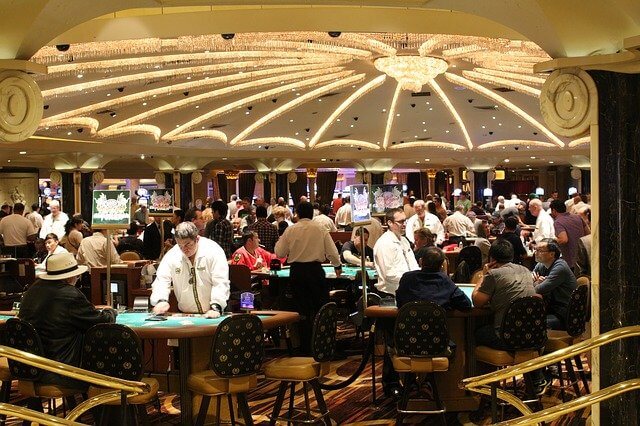
In the lively world of casinos, where the air pulses with excitement and the clinking of tokens fills the space, the role of a game dealer is both crucial and captivating. Daily, these experienced professionals step into a realm where fortune and strategy intertwine, guiding players through the highs and lows of their chosen casino games. From table games like 21 and texas hold ’em to the revolving wheels of the roulette table, dealers manage the action while ensuring that each game operates smoothly and fairly.
As the sun rises on another hectic day, a casino dealer prepares to dive in this vibrant setting. Their duties extend beyond just distributing cards or turning a wheel; they are also performers, customer service representatives, and guardians of the game regulations. Each shift brings new challenges and experiences, making every day distinct in the life of a casino dealer. This behind-the-scenes look will explore the day-to-day operations of a casino dealer, highlighting the expertise and experiences that make this career both thrilling and rewarding.
The Role of a Gambling Game Croupier
A casino game croupier is at the core of the gaming experience, orchestrating the progress of the game while ensuring that players are engaged and enjoying themselves. Their main responsibility is to oversee the table, which involves dealing cards, spinning the wheel, or handling the chips, depending on the game being played. Croupiers must possess a deep understanding of the regulations and regulations governing each type of game, while also upholding a friendly and approachable demeanor to enhance the gambling atmosphere.
In addition to overseeing the gameplay, dealers must also monitor on the players and the environment around the game. This entails monitoring for any indications of cheating, making sure that everyone is following the rules, and resolving any disputes that may arise among players. Effective communication skills are vital, as croupiers often give explanations about the rules and mechanics and offer assistance to those who may be new to casino games.
Furthermore, a dealer’s role extends beyond just the mechanical aspects of the play. They play a key part in creating an immersive experience for the players. This necessitates establishing a rapport with patrons, being sensitive to their wants, and often injecting an aspect of fun into the play. It’s this mix of skill, vigilance, and people skills that makes the role of a gambling table dealer both demanding and rewarding in the dynamic world of casino games.
Responsibilities and Challenges in Daily Operations
One of the primary responsibilities of a casino game dealer is to oversee the various games provided at their table, ensuring a smooth and pleasant experience for players. Dealers must be proficient at dealing cards, handling chips, and maintaining the flow of the game. This calls for a sharp understanding of the rules of each game, from blackjack to roulette, and the ability to answer players’ questions while keeping the game moving. Attention to detail is crucial, as dealers must monitor bets, disburse winnings accurately, and monitor any cheating or discrepancies at the table.
In addition to supervising the game itself, dealers face challenges such as managing difficult players. The casino environment can be high-pressure, particularly during intense games, and a dealer must remain composed and professional at all times. They need robust interpersonal skills to navigate interactions with players who may be frustrated about losses or dissatisfied with the game’s pace. Navigating these situations delicately is important in creating a positive atmosphere on the casino floor.
Another major responsibility is maintaining the integrity of the game. non GamStop sites Dealers must be vigilant and observant, watching for any signs of collusion or cheating among players. This involves not only a strong knowledge of the games but also an awareness of player psychology. They must also adhere to the casino’s rules and procedures, taking part in regular training sessions to keep updated on rules and protocols. Balancing these responsibilities while providing excellent customer service is what makes the role both challenging and rewarding for a dealer in a casino.
Qualities and Traits for Success
A effective casino game dealer must possess superior communication skills. This includes not only the ability to clearly explain game rules and procedures to participants but also the capacity to engage with them in a friendly and professional manner. Building rapport with customers can enhance the gaming experience and encourage repeat visits to the casino. Strong communication enables dealers to manage tables smoothly while ensuring that players feel appreciated.
Additionally, solid mathematical skills are essential for a dealer. Quick calculations are often required to follow bets, payouts, and game outcomes in real-time. A dealer’s ability to perform these numerical tasks accurately and swiftly adds to the overall efficiency of the game. This skill helps in maintaining the flow of play and in minimizing disputes or misunderstandings with players, which is crucial in a rapid casino environment.
Lastly, an ideal casino game dealer should exhibit integrity and professionalism at all times. Trust is a key component of the gaming experience, and players must feel confident that the games are conducted fairly and openly. A dealer’s commitment to upholding high ethical standards fosters a friendly atmosphere at the table and enhances the casino’s reputation. Being dependable in behavior ensures that dealers leave a memorable impression on guests, which can lead to a dedicated customer base.